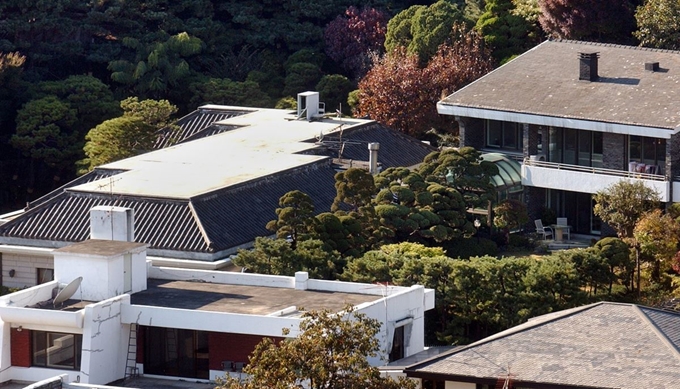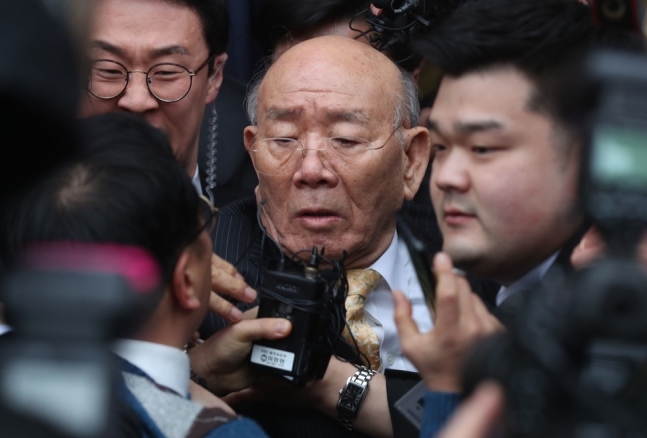 |
|
Ex-president Chun Doo-hwan’s residence in Seoul’s Yeonhui neighborhood
|
Attorney claims residence is not Chun’s private property and is registered to wife and others
“Kicking a 90-year-old man out of his house threatens his right to live,” argued Jung Ju-gyo, the attorney of Chun Doo-hwan, 88, ex-president of South Korea. Jung made the claim on the morning of Mar. 13 before Hon. Jung Jun-yeong, head of the 1st Criminal Division at the Seoul High Court in the Seocho neighborhood. Two days earlier, the same lawyer contended that Chun wasn’t guilty of defamation of the deceased in a trial connected with the Gwangju Democratization Movement. In December 2018, the prosecutors decided that they would put Chun’s house in Seoul’s Yeonhui neighborhood up for auction. They seized the house in Sept. 2013 to recoup some of Chun’s more than 100 billion won (US$88.28 million) in outstanding fines. A lawsuit objecting to the prosecutors’ move was filed by the three people in whose name the house is registered – Lee Sun-ja, Chun’s wife; Lee Taek-su, his former secretary; and Lee Yun-hye, the wife of his third son. The first hearing in this lawsuit was held on Wednesday, in the absence of the three Lees. “A criminal sentence is supposed to be executed against the criminal defendant, in this case Chun Doo-hwan. Since Chun’s personal residence is registered under the name of other people, this action is invalid,” said Jung, representing the plaintiffs. “The fine pertains to a slush fund accumulated during Chun’s presidency in the 1980s, but his personal residence in the Yeonhui neighborhood is property that was acquired in 1969. Since this property isn’t derived from his illegal proceeds, the prosecutors’ action is unconstitutional.”
 |
|
Chun exits the Gwangju District Court after the first hearing in his trial for defamation of the deceased on Mar. 11. (Baek So-ah, staff photographer)
|







